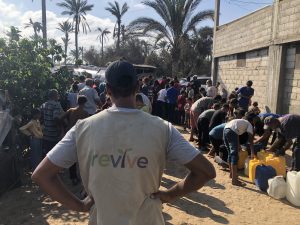

Healthy Ramadan Nutrition Hacks
How to Balance Your Nutrition in Ramadan!
- In Ramadan we experience temporary starvation which allows our hearts and souls to focus on worshiping Allah and connecting to The Qur’an – this is most important! However for a successful Ramadan, we need to be able to regulate our energy levels for daytime hours without fuel and long nights for worship. Although spirituality is Ramadan’s main focus, a few diet hacks can help boost your Ramadan Nutrition in order to facilitate your spiritual growth! We have listed a few simple nutrition hacks to help you to get the most out of Ramadan both spiritually and physically:
- Focus on balanced and nutritious meals during Suhoor (pre-dawn meal) and Iftar (meal to break the fast) to maintain energy levels throughout the day. During fasting hours, the body utilises it’s carbohydrate reserves in order to provide energy to the body. Therefore eating a selection of foods high in slow-releasing energy helps to facilitate this process.
- Include a variety of food groups in your Suhoor and Iftar meals, focusing on complex carbohydrates, protein, healthy fats, and a variety of fruits and vegetables for sustained energy.
- As the body limits the amount of water it excretes in fasting hours to avoid dehydration (which can induce headaches), avoid salty foods and sugary drinks. By focusing your evening Iftar meal and Suhoor on water or highly diluted juices, you facilitate your bodies ability to store the healthy amount of water needed throughout the following day.
- Although pastries and sweets can be tempting, they’re not the best option for a healthy Ramadan as they can leave you feeling tired and sluggish. Opt for healthy alternatives such as wholegrain breads with salad and dips in for an enjoyable and healthy appetiser!
- Follow the Sunnah – The Prophet ﷺ knew the cures for the human body better than any other human. Dates are a great way to break the fast as they provide natural sugars for energy, provide minerals like potassium, copper and manganese and are a source of fibre. Open your fats with dates and water before praying Maghrib before settling into the main evening meal. Dates will provide your body with the boost of nutrition they need after fasting all day.
- Pace yourself. The Prophet ﷺ advised that we will our stomachs 1/3 for food, 1/3 for water and 1/3 for air. If we over eat at Iftar, we can become late for prayers and also find it difficult to observe Taraweeh. By eating smaller portions throughout the evening (now that the nights are longer) you can get the nutrition you need, without becoming weighed down by your meal.
We hope you have a blessed Ramadan and that these Ramadan Nutrition hacks help sustain you throughout the month! In the West, our problem is often eating too much. Please spare a moment for the Muslims around the world who are suffering from starvation and food scarcity.
Give Iftar and Suhoor to Gaza, Syria, Yemen and Bosnia This Ramadan!




